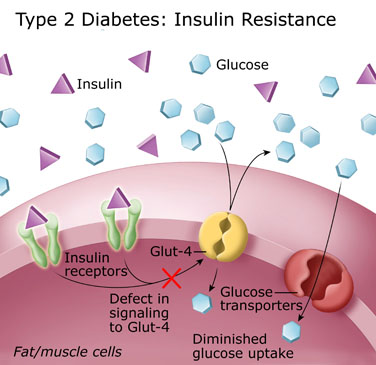Type 2 diabetes patients transplanted with own bone marrow stem cells reduces insulin use
A study carried out in India examining the safety and efficacy of self-donated (autologous), transplanted bone marrow stem cells in patients with type 2 diabetes (TD2M), has found that patients receiving the transplants, when compared to a control group of TD2M patients who did not receive transplantation, required less insulin post-transplantation.
The study appears as an early e-publication for the journal Cell Transplantation, and is now freely available on-line at http://www.ingentaconnect.com/content/cog/ct/pre-prints/ct0920bhansali.
“There is growing interest in the scientific community for cellular therapies that use bone marrow-derived cells for the treatment of type 2 diabetes mellitus and its complications,” said study corresponding author Anil Bhansali, PhD professor and head of the Endocrinology Department at the Post Graduate Institute of Medical Education in Chandrigarh, India. “But the potential of stem cell therapy for this disease is yet to be fully explored.”
While there is growing interest in using stem cell transplantation to treat TD2M, few studies have examined the utility of bone marrow-derived stem cells. By experimenting with bone marrow-derived stem cells, the researchers sought to exploit the rich source of stem cells in bone marrow.
Their study aimed at evaluating the efficacy and safety of autologous bone marrow-derived stem cell transplantation in patients with T2DM and who also had good glycemic control. Good glycemic control emerged as an important factor in the transplantation group and in the non-transplanted control group.
Cell transplantation had a significant impact on the patients in this study as those administered cells demonstrated a significant reduction in insulin requirement. A significantly smaller reduction in the insulin requirement of the control group was also observed but a “repeated emphasis on life style modification” was believed to be a contributing factor in this effect.
 Type 2 diabetes patients transplanted with own bone marrow stem cells reduces insulin use" class="border" /> According to Dr. Bhansali, the strength of their study included the inclusion of a homogenous patient population with T2DM which exhibited good glycemic control, and the presence of a similar control group that did not get cell transplants.
Type 2 diabetes patients transplanted with own bone marrow stem cells reduces insulin use" class="border" /> According to Dr. Bhansali, the strength of their study included the inclusion of a homogenous patient population with T2DM which exhibited good glycemic control, and the presence of a similar control group that did not get cell transplants.
“The efficacy and safety of stem cell therapy needs to be established in a greater number of patients and with a longer duration follow-up,” concluded Bhansali and his co-authors. “The data available so far from animal and human studies is encouraging, however, it has enormous limitations.”
The researchers recommended determining which type of stem cells -hematopoietic, bone marrow or placenta-derived - might be best to treat T2DM. In addition, they said that post-transplantation patients needed close monitoring for the development of neoplasia as stem cells - whether multipotent or pluripotent - have the potential for malignant transformation.
 Type 2 diabetes patients transplanted with own bone marrow stem cells reduces insulin use" class="border" /> They concluded that “autologous bone marrow-derived stem cell therapy in patients with T2DM results in significant decrease in insulin dose requirement.”
Type 2 diabetes patients transplanted with own bone marrow stem cells reduces insulin use" class="border" /> They concluded that “autologous bone marrow-derived stem cell therapy in patients with T2DM results in significant decrease in insulin dose requirement.”
###
Contact:
Dr. Anil Bhansali
Email: .(JavaScript must be enabled to view this email address)
Citation: Bhansali, A.; Asokumra,P.; Walia, R.; Bhansali, S.; Gupta, V.; Jain, A.; Sachdeva, N.; Sharma, R. R.; Marwaha, N.; Khandelwal, N. Efficacy and Safety of Autologous Bone Marrow Derived Stem Cell Transplantation in patients with Type 2 Diabetes mellitus: A randomized placebo-controlled study. Cell Transplantation.
Appeared or available online: April 2, 2013
The Coeditors-in-chief for CELL TRANSPLANTATION are at the Diabetes Research Institute, University of Miami Miller School of Medicine and Center for Neuropsychiatry, China Medical University Hospital, TaiChung, Taiwan. Contact, Camillo Ricordi, MD at .(JavaScript must be enabled to view this email address) or Shinn-Zong Lin, MD, PhD at .(JavaScript must be enabled to view this email address) or David Eve, PhD at .(JavaScript must be enabled to view this email address)
###
Robert Miranda
.(JavaScript must be enabled to view this email address)
Cell Transplantation Center of Excellence for Aging and Brain Repair